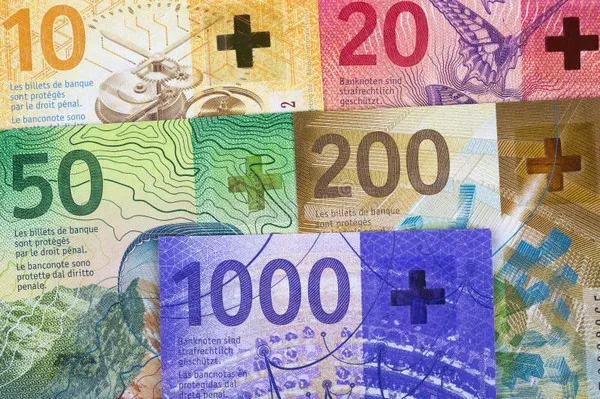The Swiss franc, denoted by the code CHF, is the official currency of Switzerland. It is also used as a reserve currency in other countries due to its stability and reliability. But have you ever wondered why it’s called CHF? In this article, we will explore the history and explanation behind the abbreviation.
History of Swiss Currency
Before delving into the specifics of CHF, let’s take a brief look at the history of Swiss currency. The Swiss currency has undergone several changes over the years. Before 1798, each canton (state) had its own currency. However, with the creation of the Helvetic Republic, a unified currency was introduced in 1798, known as the Frank. This was followed by the introduction of the Swiss franc in 1850, which replaced the Frank as the official currency of Switzerland.
So why is the Swiss currency called the franc? It’s worth noting that the franc is a commonly used currency name across various countries, including France, Belgium, and Luxembourg. The origin of the name ‘franc’ can be traced back to the reign of King Louis IX of France in the 13th century. His royal coinage was called the ‘franc d’or,’ which means ‘golden franc’ in French. The word ‘franc’ itself means ‘free’ or ‘unencumbered’ in old French, which would indicate that these coins were pure gold and not debased like other currencies during that period.
Explanation behind CHF
Now that we understand the origins of the franc, let’s explore the explanation behind CHF. The abbreviation CHF stands for Confoederatio Helvetica Franc, which translates to ‘Swiss Confederation Franc’ in English. So, why use an abbreviation instead of simply writing ‘Swiss Franc’?
The answer lies in Switzerland’s unique political system. Switzerland is a confederation consisting of 26 cantons, each with its own government and laws. Despite this decentralized system, the country has a unified federal state that governs the nation as a whole. The abbreviation CHF is used to emphasize the country’s unity while acknowledging the autonomy of its individual cantons.
Using an abbreviation for the currency also provides several practical benefits. CHF is easy to recognize and remember, especially in international financial transactions, where currency codes are essential. Moreover, abbreviating the currency name saves space on banknotes and coins, allowing for more complex design elements to be included.
Stability and Reliability of the Swiss Franc
The Swiss franc is known worldwide for its stability and reliability. In times of economic uncertainty, investors tend to flock to the franc due to its safe-haven status. But why is the franc considered stable and reliable?
Firstly, Switzerland has a long tradition of political and economic stability. The country has been neutral since 1815, which means it has not participated in any wars, making it one of the safest countries in the world. Additionally, Switzerland has a highly developed and diversified economy, with strong banking and financial sectors.
Secondly, the Swiss National Bank (SNB) plays a critical role in maintaining the value of the franc. The SNB is responsible for the monetary policy of Switzerland and aims to ensure price stability while supporting the overall economic goals of the country. To achieve this, the SNB uses a range of tools such as interest rates, foreign exchange interventions, and negative interest rates.
Why the Swiss Franc is a Stable Currency?
The Swiss franc is considered a stable currency for several reasons. One of the main reasons is its long-standing reputation for stability and reliability. Switzerland has a strong economy, political stability, low inflation and a sound banking system. This has given investors confidence in the Swiss franc, which has helped to maintain its value over time.
Another reason why the Swiss franc is considered a stable currency is that the Swiss National Bank (SNB) has a policy of maintaining price stability while allowing the exchange rate to float freely. The SNB uses various monetary tools to control the money supply and keep inflation low, which helps to support the value of the Swiss franc.
Additionally, the Swiss franc has historically been seen as a safe haven currency during times of economic uncertainty or geopolitical turmoil. This is because Switzerland has a tradition of neutrality and stability, which makes it a relatively low-risk country to invest in.
Conclusion
In conclusion, the Swiss franc is called CHF because it stands for Confoederatio Helvetica Franc, which translates to ‘Swiss Confederation Franc.’ Using an abbreviation emphasizes the unity of Switzerland while acknowledging the autonomy of its individual cantons. The Swiss franc is known for its stability and reliability, thanks to Switzerland’s political and economic stability and the efforts of the Swiss National Bank. Overall, the CHF remains one of the most sought-after currencies in the world due to its reputation for security and stability.


